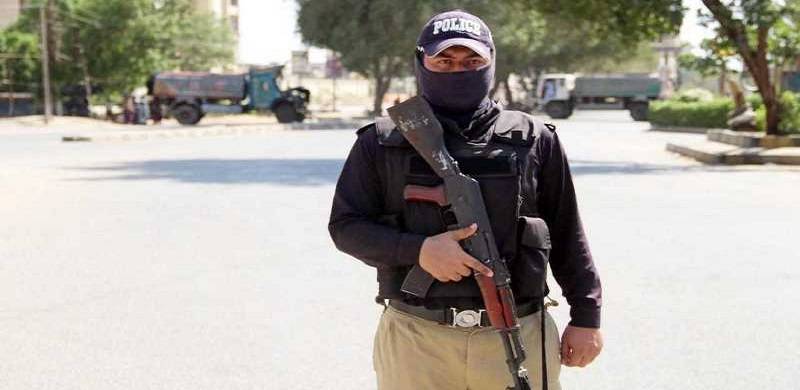
A fresh survey by the Transparency International on Friday revealed police to be one of the most corrupt institutions of the country, with tendering and contracting, judiciary, and education on the second, third, and fourth slots, respectively.
The organisation released results of National Corruption Perception Survey 2022 (NCPS) on the occasion of the International Anti-Corruption Day.
Unsurprisingly, police topped the list of corrupt institutions last year also.
As per the breakdown, education was seen as the most corrupt sector, followed by police, and tendering & contracting.
In Punjab, police was seen as the most corrupt, followed by tendering & contracting, and judiciary.
In Khyber Pakhtunkhwa, judiciary topped the most corrupt sectors, with tendering & contracting, and police being in the latter slots.
In Balochistan, tendering & contracting was believed to be the most corrupt, followed by police and judiciary.
45 percent of the respondents deemed "ineffective" the role of anti-corruption bodies in curbing graft.
They also believed that corruption was high in public service delivery. 33 percent of the survey-takers opined that corruption should be punishable by life imprisonment.
Another 28 percent believed that government officials, military officers, politicians, and judges should disclose their assets for the public.
25 percent were of the opinion that the corruption cases should be decided within a span of six months.
Furthermore, 77 percent of people termed it difficult to obtain public information from public bodies.
64 percent also opined that the country hadn't been able to benefit from the International Monetary Fund (IMF) agreement.
At least 54 percent believed that the reporting by news channels in Pakistan was biased.
The organisation released results of National Corruption Perception Survey 2022 (NCPS) on the occasion of the International Anti-Corruption Day.
Unsurprisingly, police topped the list of corrupt institutions last year also.
As per the breakdown, education was seen as the most corrupt sector, followed by police, and tendering & contracting.
In Punjab, police was seen as the most corrupt, followed by tendering & contracting, and judiciary.
In Khyber Pakhtunkhwa, judiciary topped the most corrupt sectors, with tendering & contracting, and police being in the latter slots.
In Balochistan, tendering & contracting was believed to be the most corrupt, followed by police and judiciary.
45 percent of the respondents deemed "ineffective" the role of anti-corruption bodies in curbing graft.
They also believed that corruption was high in public service delivery. 33 percent of the survey-takers opined that corruption should be punishable by life imprisonment.
Another 28 percent believed that government officials, military officers, politicians, and judges should disclose their assets for the public.
25 percent were of the opinion that the corruption cases should be decided within a span of six months.
Furthermore, 77 percent of people termed it difficult to obtain public information from public bodies.
64 percent also opined that the country hadn't been able to benefit from the International Monetary Fund (IMF) agreement.
At least 54 percent believed that the reporting by news channels in Pakistan was biased.

